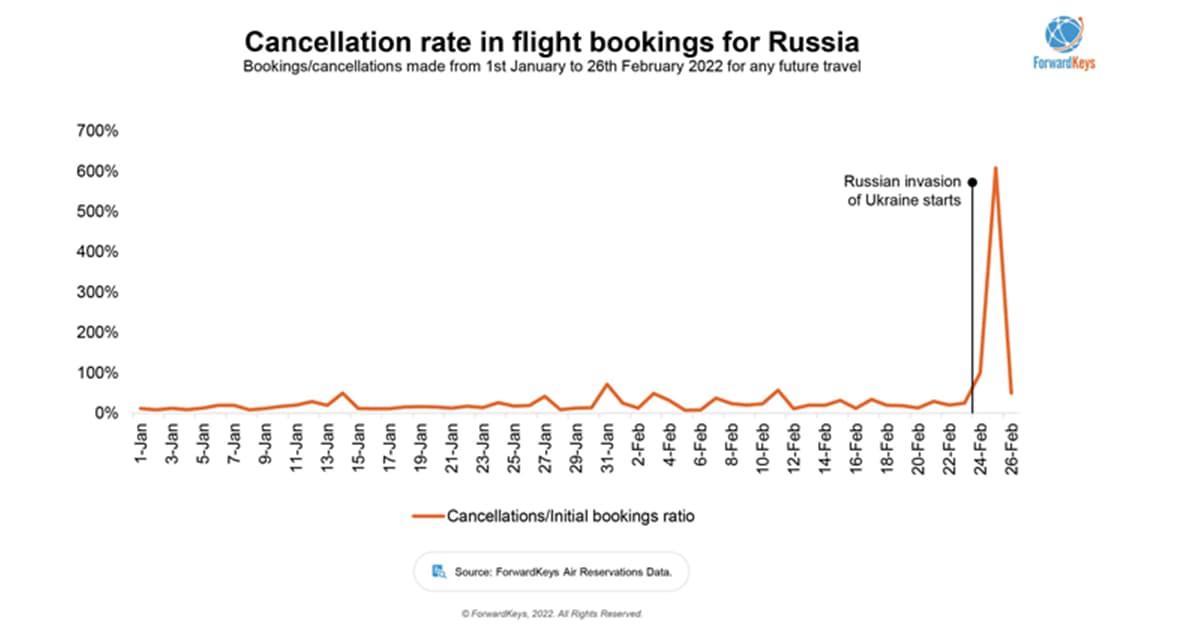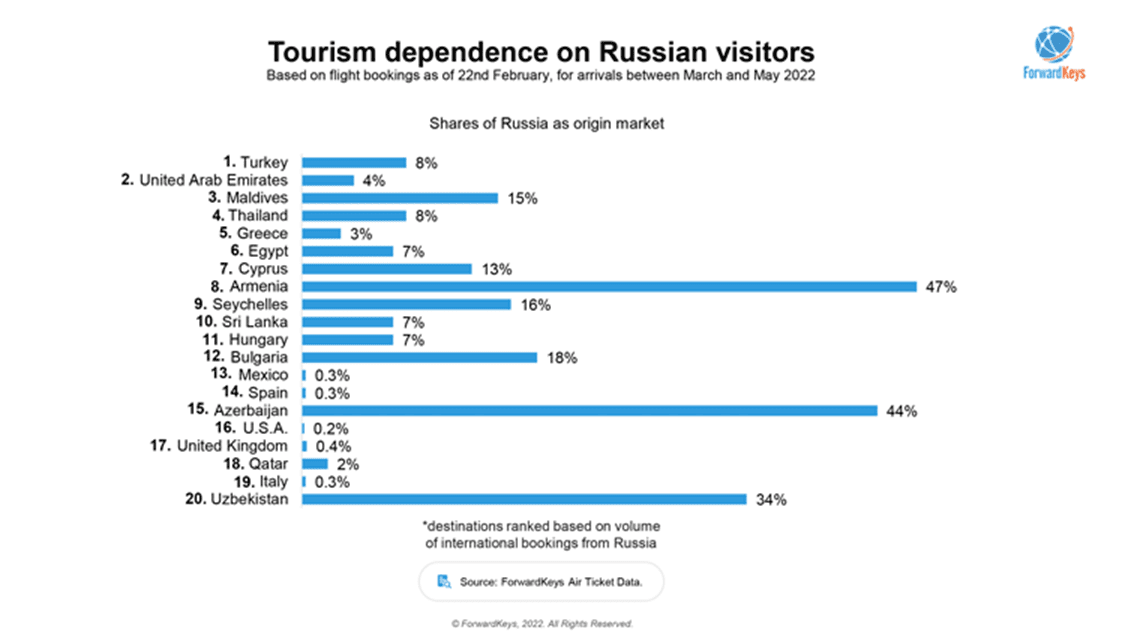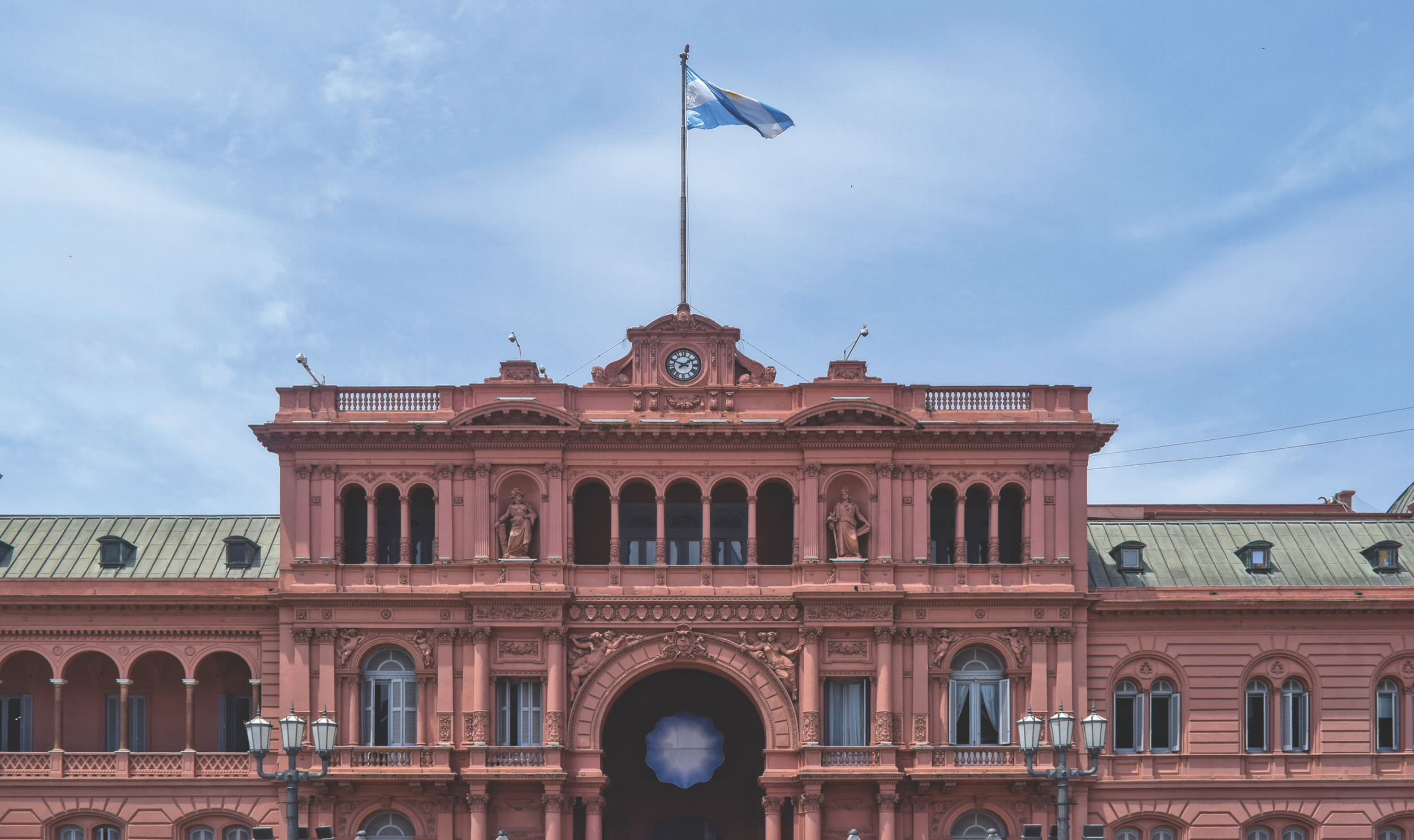
The latest data fromForwardKeys reveals that Russia’s invasion of Ukraine prompted an instant spikein flight cancellations to and from Russia. On February 25, theday after the start of the invasion, every booking that was made for travel toRussia was outweighed by six cancellations of pre-existing bookings. The sourcemarkets exhibiting the highest cancellation rates, in order of volume, wereGermany 773%, France 472%, Italy 152%, the UK 254%, India 285% and Turkey 116%.

The invasion also triggered acollapse in the market for Russian outbound travel. Destinations which sufferedthe highest immediate cancellation rates, in the period February 24 – 26, were Cyprus (300%), Egypt (234%), Turkey (153%), the UK (153%),Armenia (200%), and Maldives (165%).
Prior to the outbreak of war,Russian outbound flight bookings for March, April and May, had recovered to 32%of pre-pandemic levels, with some holiday hotspots doing exceptionally well.Mexico had been leading the way with flight bookings 427% ahead of 2019 levels.It was followed by Seychelles 279% ahead, Egypt 192% ahead and the Maldives115% ahead. The outlook for travel during the summer months, July and August,was significantly stronger, as flight bookings stood at 46% of 2019 levels withdestinations like the Maldives 78% ahead, the Seychelles 275% ahead and Egypt216% ahead.
For some of the countriesmentioned above, such as the Seychelles, Maldives and Cyprus, Russian arrivalsrepresent for a high percentage of all international arrivals; so, a collapsein Russian travel will have damaging consequences on their tourism-dependenteconomies. The countries that currently stand to suffer worst include Armenia,which depends on Russia for 47% of all visitors, Azerbaijan 44%, Uzbekistan 34%,Bulgaria 18%, the Seychelles 16%, the Maldives 15% and Cyprus 13%.
Before the outbreak of war, thetop twenty destinations most booked by Russian travellers in March, April andMay were, in order of total bookings, Turkey, the UAE, the Maldives, Thailand,Greece, Egypt, Cyprus, Armenia, the Seychelles, Sri Lanka, Hungary, Bulgaria,Mexico, Spain, Azerbaijan, USA, UK, Qatar, Italy and Uzbekistan.
Coinciding with the collapse ininternational air travel, a strong recovery in domestic air travel, immediatelystalled. Up to February 23, Russian domestic flight bookings forMarch, April and May were running 25% ahead of pre-pandemic levels. However, newbookings fell 77%, analysed on a week-on-week basis.
Olivier Ponti, VP Insights, ForwardKeys said: “The outbreak of war always has a hugely damaging impact on the travelindustry; and that is what we are seeing here, with mass cancellations inflight bookings to and from Russia. The Russian tourism economy was beginningto revive from the pandemic; and it will now experience another substantialblow. There will also be serious impacts on destinations that depend heavily onRussian visitors. The current data does not yet contain the impact ofsanctions, which is bound to make the picture worse. Of course, should there bea cease fire and successful peace talks, the outlook for travel should improve.However, while the economic damage already looks set to be dreadful; it isnothing compared to the human suffering experienced by the people in thefield."




